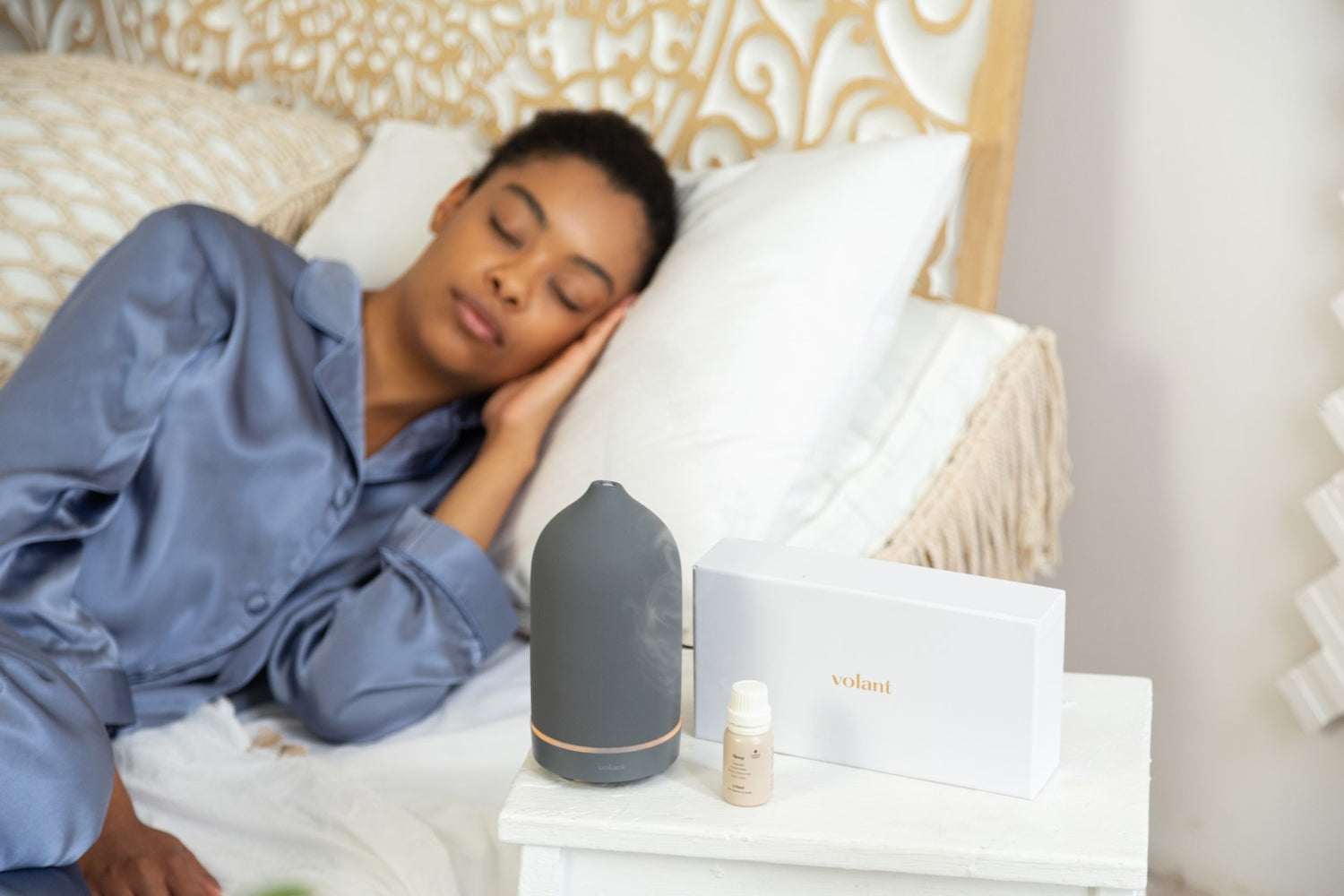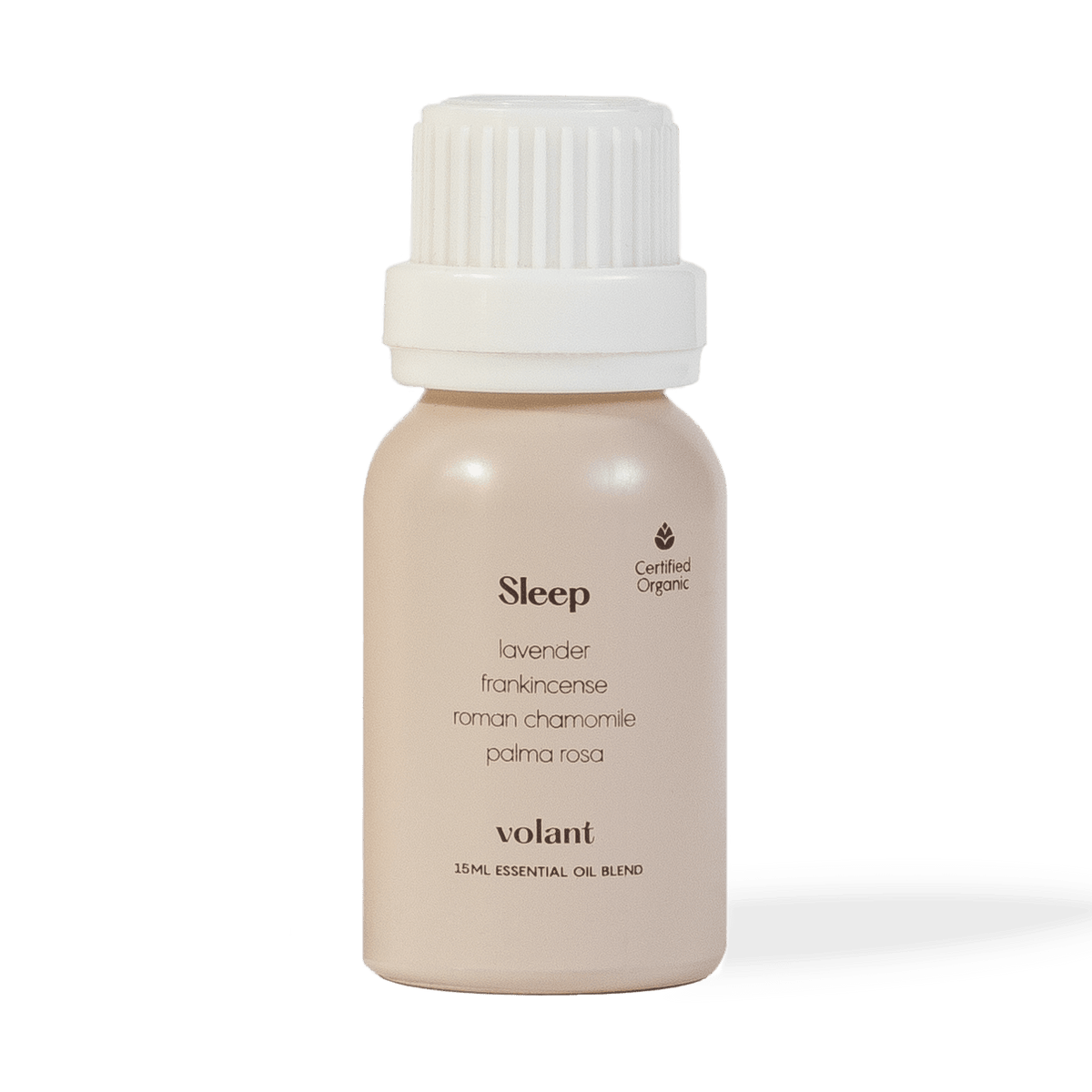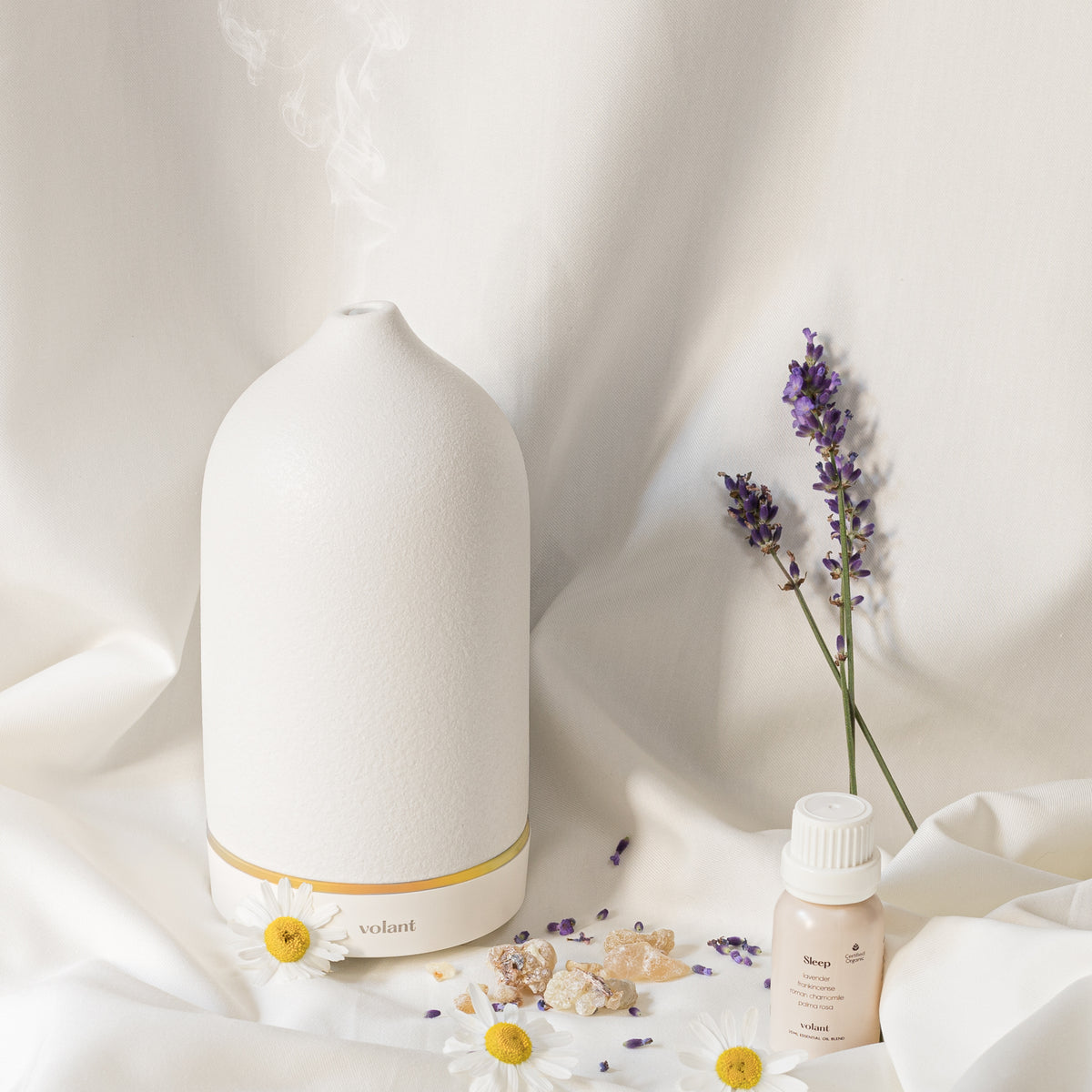Essential oil's calm and relaxing aromas can help you to drift off and to stay asleep all night, leaving you feeling rested and refreshed.
How does aromatherapy help with sleep?

Scientists haven’t yet been able to work out why aromatherapy has such an impact on sleep. It’s thought that inhaling essential oils or absorbing them through your skin may help to activate the brain chemicals which are involved in controlling sleep.
Our sense of smell is connected directly to the brain’s centre for memories and emotions, otherwise known as the limbic system. As you inhale the aromas of essential oils, they are detected by cells inside the nose which send the information to the brain through the olfactory nerve. This information goes directly to the brain’s limbic system, where it has the ability to impact our emotional reactions and memories.
While scientific research on how aromatherapy affects sleep is still limited, many studies have shown essential oils to have a dramatic impact on relaxation whilst helping to encourage sound sleep.







